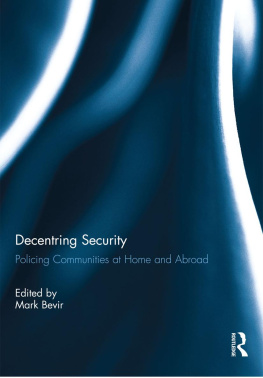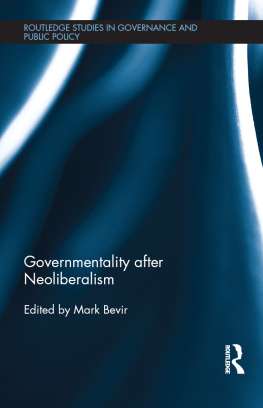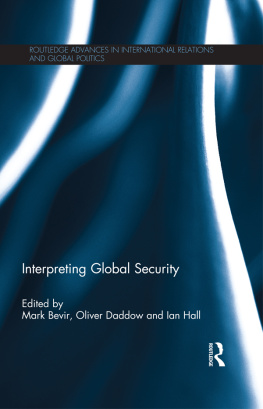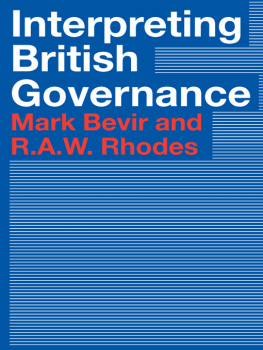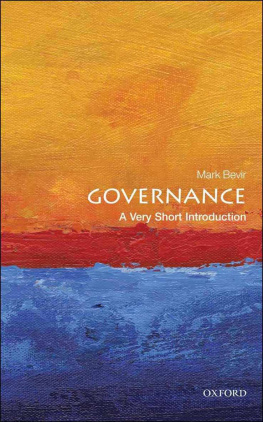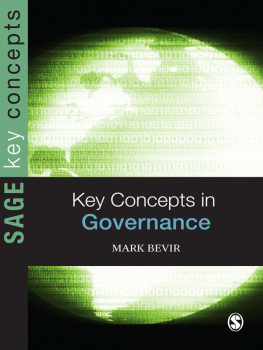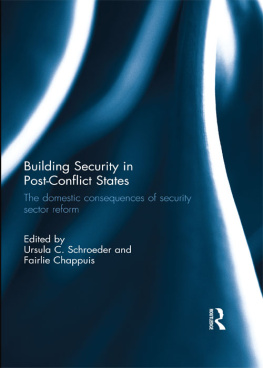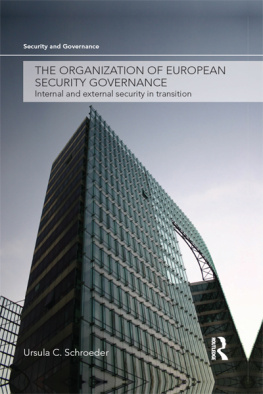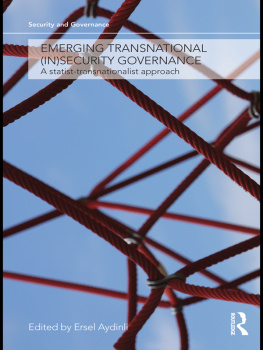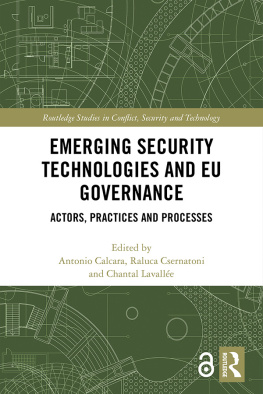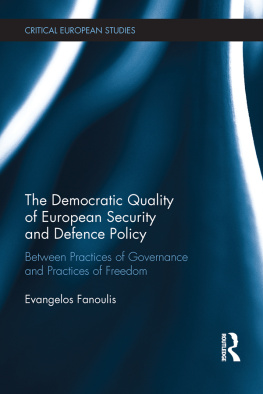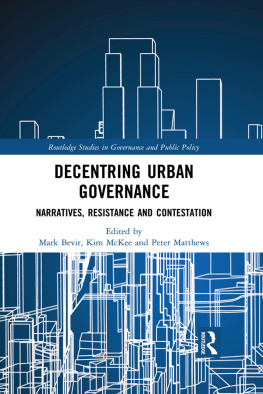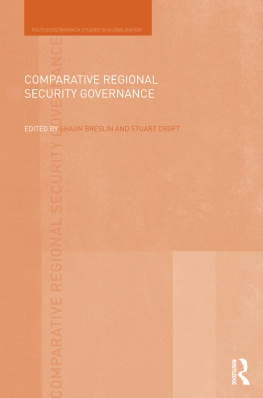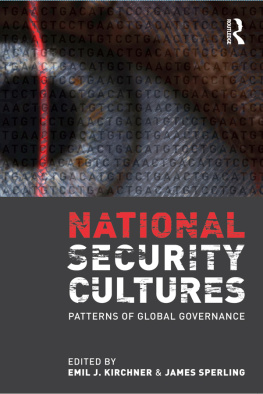Decentring Security
Contemporary security governance often relies on markets and networks to link public agencies to non-governmental actors. This book explores the rise, nature, and future of these new forms of security governance across various domestic, transnational, and international settings. The chapters reveal similarities and differences in the way security governance operates in various policy settings. The contributors argue that the similarities generally arise because policy elites, at various levels of governance, have come to believe that security depends on building resilience and communities through various joined-up arrangements, networks, and partnerships. Differences nonetheless persist because civil servants, street level bureaucrats, voluntary sector actors, and citizens all draw on diverse traditions to interpret, and at times resist, the joined-up security being promoted by these policy elites. This book therefore decentres security governance, showing how all kinds of local traditions influence the way it works in different settings. It pays particular attention to the meanings, cultures, and ideologies by which policy actors encounter, interpret, and evaluate security dilemmas.
This book was originally published as a special issue of Global Crime.
Mark Bevir is Professor of Political Science and Director of the Center for British Studies at the University of California, Berkeley, USA. He is the author of various books including Democratic Governance (2010), Governance: A very short introduction (2012), and A Theory of Governance (2013).
Decentring Security
Policing Communities at Home and Abroad
Edited by
Mark Bevir
First published 2018
by Routledge
2 Park Square, Milton Park, Abingdon, Oxon, OX14 4RN, UK
and by Routledge
711 Third Avenue, New York, NY 10017, USA
Routledge is an imprint of the Taylor & Francis Group, an informa business
Chapters 1 & 37 2018 Taylor & Francis
Chapter 2 2018 Adam Edwards. Originally published as Open Access.
Chapter 8 2018 Louise Westmarland. Originally published as Open Access.
With the exception of Chapters 2 and 8, no part of this book may be reprinted or reproduced or utilised in any form or by any electronic, mechanical, or other means, now known or hereafter invented, including photocopying and recording, or in any information storage or retrieval system, without permission in writing from the publishers. For details on the rights for Chapters 2 and 8, please see the chapters Open Access footnotes.
Trademark notice: Product or corporate names may be trademarks or registered trademarks, and are used only for identification and explanation without intent to infringe.
British Library Cataloguing in Publication Data
A catalogue record for this book is available from the British Library
ISBN 13: 978-1-138-50320-5
Typeset in Times New Roman
by RefineCatch Limited, Bungay, Suffolk
Publishers Note
The publisher accepts responsibility for any inconsistencies that may have arisen during the conversion of this book from journal articles to book chapters, namely the possible inclusion of journal terminology.
Disclaimer
Every effort has been made to contact copyright holders for their permission to reprint material in this book. The publishers would be grateful to hear from any copyright holder who is not here acknowledged and will undertake to rectify any errors or omissions in future editions of this book.
Contents
Citation Information
The chapters in this book were originally published in Global Crime, volume 17, issue 34 (AugustNovember 2016). When citing this material, please use the original page numbering for each article, as follows:
Chapter 1
Decentring security governance
Mark Bevir
Global Crime, volume 17, issue 34 (AugustNovember 2016), pp. 227239
Chapter 2
Multi-centred governance and circuits of power in liberal modes of security
Adam Edwards
Global Crime, volume 17, issue 34 (AugustNovember 2016), pp. 240263
Chapter 3
New narratives of international security governance: the shift from global interventionism to global self-policing
David Chandler
Global Crime, volume 17, issue 34 (AugustNovember 2016), pp. 264280
Chapter 4
Exporting decentred security governance: the tensions of security sector reform
Rita Abrahamsen
Global Crime, volume 17, issue 34 (AugustNovember 2016), pp. 281295
Chapter 5
Webs, walls, and wars
David J Betz
Global Crime, volume 17, issue 34 (AugustNovember 2016), pp. 296313
Chapter 6
Ideologies and crime: political ideas and the dynamics of crime control
Ian Loader and Richard Sparks
Global Crime, volume 17, issue 34 (AugustNovember 2016), pp. 314330
Chapter 7
Peacebuilding and SSR in Kosovo: an Interactionist perspective
Anne Holohan
Global Crime, volume 17, issue 34 (AugustNovember 2016), pp. 331351
Chapter 8
Governance of policing and cultural codes: interpreting and responding to policy directives
Louise Westmarland
Global Crime, volume 17, issue 34 (AugustNovember 2016), pp. 352369
For any permission-related enquiries please visit: http://www.tandfonline.com/page/help/permissions
Notes on Contributors
Rita Abrahamsen is a Full Professor at the Graduate School of Public and International Affairs, University of Ottawa, Canada.
David J Betz is Professor of War in the Modern World at the Department of War Studies, Kings College London, UK.
Mark Bevir is Professor of Political Science and Director of the Center for British Studies at the University of California, Berkeley, USA.
David Chandler is Professor of International Relations and Director of the Centre for the Study of Democracy at the University of Westminster, London, UK.
Adam Edwards is a Reader at the School of Social Sciences, Cardiff University, UK.
Anne Holohan is Associate Professor at the Department of Sociology, Trinity College, Dublin, Ireland.
Ian Loader is Professor of Criminology at the Centre for Criminology, University of Oxford, UK.
Richard Sparks is Professor of Criminology and Head of the School of Law at the University of Edinburgh, UK.
Louise Westmarland is Senior Lecturer in Criminology at the Faculty of Social Sciences, The Open University, UK.
Decentring security governance
Mark Bevir
A new security governance has spread in domestic and international areas of policing. Security is increasingly associated with community and capacity building. There is a consensus that the way to build communities is through networks. Yet, the new security governance varies widely in ways that reflect the traditions through which civil servants, street level bureaucrats, voluntary sector actors, and citizens interpret and resist networked security. Security governance is thus a set of diverse practices emerging from contests over meanings, including the social scientific theories that inspired the turn to networks and the local traditions through which policy actors have encountered, interpreted, and evaluated the policies these theories have inspired.

